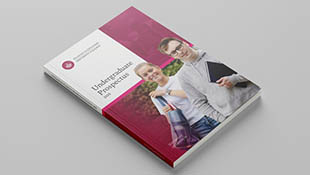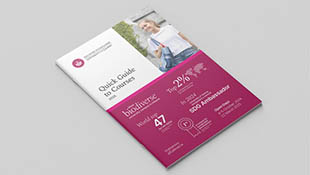-
Courses

Courses
Choosing a course is one of the most important decisions you'll ever make! View our courses and see what our students and lecturers have to say about the courses you are interested in at the links below.
-
University Life

University Life
Each year more than 4,000 choose University of Galway as their University of choice. Find out what life at University of Galway is all about here.
-
About University of Galway

About University of Galway
Since 1845, University of Galway has been sharing the highest quality teaching and research with Ireland and the world. Find out what makes our University so special – from our distinguished history to the latest news and campus developments.
-
Colleges & Schools

Colleges & Schools
University of Galway has earned international recognition as a research-led university with a commitment to top quality teaching across a range of key areas of expertise.
-
Research & Innovation

Research & Innovation
University of Galway’s vibrant research community take on some of the most pressing challenges of our times.
-
Business & Industry

Guiding Breakthrough Research at University of Galway
We explore and facilitate commercial opportunities for the research community at University of Galway, as well as facilitating industry partnership.
-
Alumni & Friends

Alumni & Friends
There are 128,000 University of Galway alumni worldwide. Stay connected to your alumni community! Join our social networks and update your details online.
-
Community Engagement

Community Engagement
At University of Galway, we believe that the best learning takes place when you apply what you learn in a real world context. That's why many of our courses include work placements or community projects.
Careers with Classics

What can I do after studying Ancient Classics?
Some recent Classics students at the University of Galway have gone on to the following careers:
- Academia (university lecturers, e.g. at Princeton; post-doctoral researcher; university administrators)
- Author (published novelist)
- Civil Service (departments of Finance and Employment Affairs)
- Consultancy (audit manager for major international firm)
- Customer Support (for an international games company)
- Law (barrister; legal assistant in the Paris area)
- Marketing and PR (for an Irish bank; for a Dublin theatre festival; for an Australian wine company; for a US volunteering agency)
- Media (production co-ordinator for a Canadian film company; production controller for a major UK publisher; content editor for a sports website; TV journalist)
- Performance (actor in Channel 4 sitcom; casting agent)
- Recruitment Consultant
- Social Sector (traveller support agency; refugee agency)
- Teacher
Your BA degree
It is important to remember that, whatever your subject choices, your qualification on graduation will be a Bachelor of Arts degree. The BA degree has long been recognised as a mark of attainment in general education.
A good result in your degree indicates to employers that you have developed the following personal competencies:
- Absorb and analyze complex information
- Perform focused research on complex issues
- Communicate with clarity, accuracy and polish
- Original thinking
It also demonstrates the following personal attributes:
- Self-motivation
- Capacity for hard work
- Ability to organise, prioritise and work independently
- Ability to learn
All of these soft skills are very important to employers (according to a recent LinkedIn study).
Within your degree, Classics is particularly good for developing the following competencies:
- Flexibility. Because you can study history, literature, theatre, mythology, art, archaeology, languages and linguistics as part of your Classics education, you will develop confidence in undertaking many different kinds of tasks.
- Linguistic competence. If you study Latin or Greek, you will develop very strong general linguistic skills, including a much better understanding of English vocabulary (about 70% of which is derived from Latin), English grammar (easy after studying ancient languages!), and the mechanics of how language works. You will find that as a result you will develop both your own communication power and your ability to analyse the spoken and written word.
Read our student testimonials on the skills students themselves felt they acquired from the study of Classics.
Classics and teaching
Many Arts students consider the possibility of a career in teaching. If you are interested in teaching, you should keep in mind that while Classics, Classical Studies, Latin and Ancient Greek are all subjects on the second-level curriculum, they are not core subjects in most Irish schools.
However, Classics may be valuable for your teaching profile in other ways. In particular, studying an ancient or medieval civilisation is currently a requirement on the Junior Cycle History curriculum. And of course, having a knowledge of Classical backgrounds will enrich your knowledge of other subjects (particularly English literature, from Shakespeare to Wilde, Joyce and Heaney), and so Classics can complement your teaching portfolio, even if you take it in First Year only.
Further reading
- Career Development Centre
- Careers Portal (www.careersportal.ie)
- The Skills Companies Need Most in 2019 (LinkedIn)
- What can I do with an arts or humanities degree? (gradireland.com)
- Options with your subject: Classics (prospects.ac.uk)
- What to do with a degree in classics (the Guardian, 24 July 2010)
John Hannon of the Career Development Centre discusses careers with an Arts degree:



















